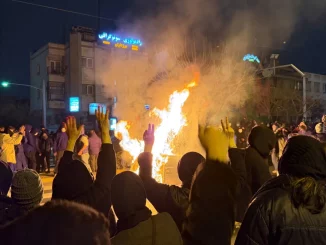
REUTERS/Mahmoud Issa Purchase Licensing Rights
| Published May 27, 2025
Reports emerged that Hamas had agreed to a ceasefire proposal attributed to U.S. special envoy Steve Witkoff. The plan reportedly entailed a 60- to 70-day truce, the release of 10 Israeli hostages in two phases, a partial Israeli withdrawal from Gaza, and the release of Palestinian prisoners, including those serving long sentences.
However, both the United States and Israel have denied the existence of such an agreement. Witkoff stated that the proposal was “completely unacceptable” and not representative of any official U.S. position. An Israeli official also dismissed the proposal, asserting that no responsible government could accept such terms.
Israeli Prime Minister Benjamin Netanyahu emphasized the ongoing efforts to release hostages and defeat Hamas, reiterating that Israel would only consider temporary ceasefires linked to hostage releases, not a permanent truce.
The situation remains fluid, with conflicting reports and denials from involved parties. The humanitarian crisis in Gaza continues to worsen, with over 54,000 Palestinians reported killed and widespread malnutrition amid ongoing Israeli airstrikes.
The conflicting reports about Hamas agreeing to a U.S.-backed ceasefire proposal—followed by immediate denials from both the U.S. and Israel—have several serious implications:
1. Fragile Diplomatic Channels
-
The fact that a ceasefire proposal was publicized before full agreement among parties suggests a breakdown or miscommunication in diplomatic channels.
-
It highlights the difficulty in brokering a truce amid distrust and diverging priorities between the U.S., Israel, and Hamas.
2. Political Signaling
-
Hamas’s public acceptance (if genuine) could be a strategic move to appear cooperative in the international arena, shifting pressure onto Israel and its allies.
-
The swift U.S. and Israeli denials may reflect domestic or political calculations—especially for Netanyahu, who faces internal criticism over how the war has been handled.
3. Humanitarian Consequences
-
The back-and-forth delays meaningful relief to civilians in Gaza, where the death toll and humanitarian crisis continue to escalate.
-
Temporary ceasefire proposals tied only to hostage releases mean long-term aid and rebuilding efforts remain stalled.
4. Regional Stability
-
Missteps in handling the ceasefire talks can trigger wider instability, drawing in other actors like Hezbollah or Iran.
-
It complicates U.S. credibility as a mediator and may shift regional powers to seek alternative alliances or strategies.
5. Information Warfare
-
The release and denial of such sensitive information point to ongoing information battles between parties, possibly to sway public opinion or shift blame.
Overall Takeaway:
The conflicting reports over a Gaza ceasefire reveal just how fragile and politically charged the negotiations are. While Hamas claims willingness to accept a U.S.-linked proposal, the U.S. and Israel’s swift denials underscore deep mistrust and diverging agendas. This episode reflects a broader pattern: even when opportunities for peace emerge, they are quickly overshadowed by strategic posturing, unclear communication, and hardened political positions. Meanwhile, civilians in Gaza remain caught in a worsening humanitarian crisis with no clear end in sight.
SOURCES: REUTERS – Palestinian official says Hamas agrees to Gaza proposal, Israel dismisses it
AL JAZEERA – Hamas agrees to a Gaza ceasefire, sources say; US and Israel reject offer





Be the first to comment